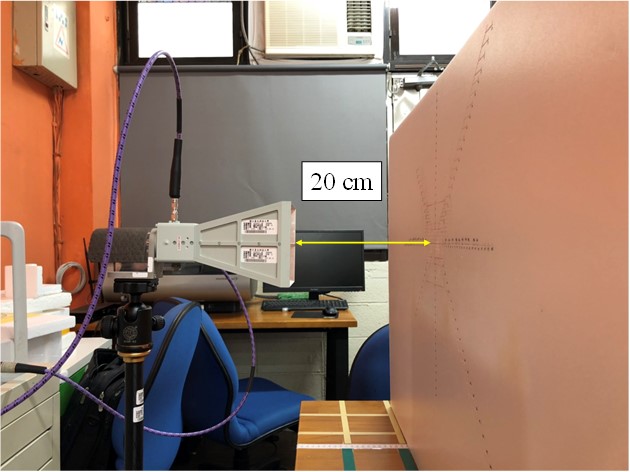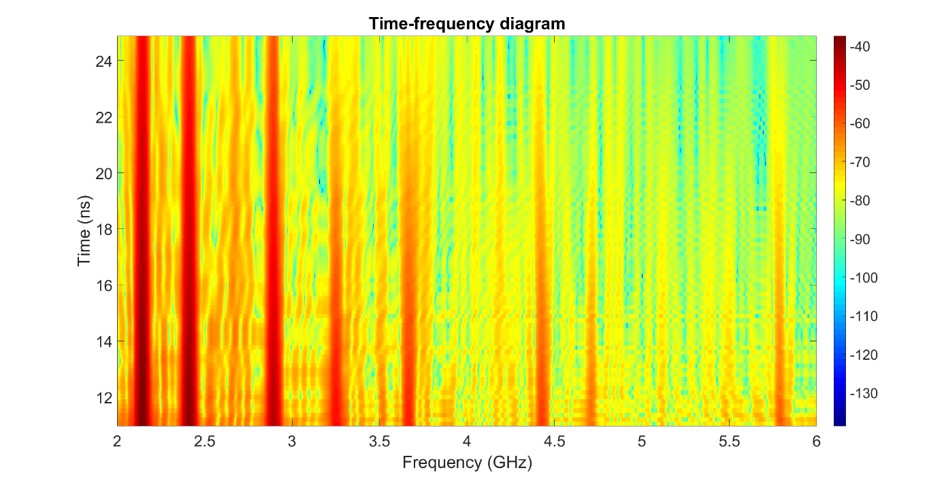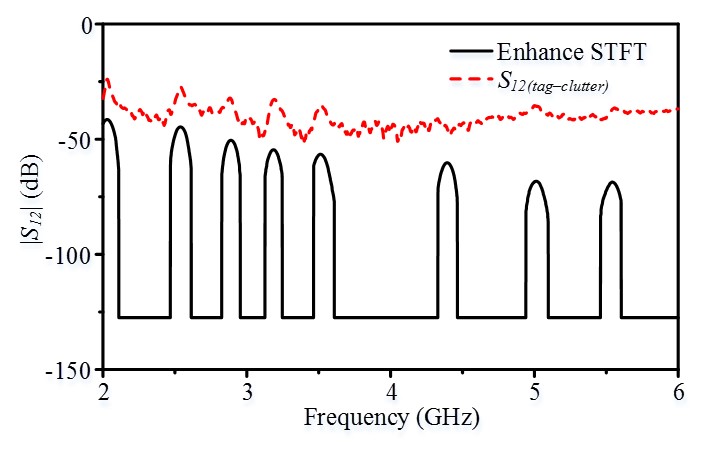Automatic Topology Generation for High-Capacity and Calibration-Free Chipless RFID Tags

| Name | Year |
| Jia-Wen Hsu | 2020 |
| Keywords | |
| Radiofrequency identification, encoding, resonatorradar cross-section, Fourier transforms, design automation |
This research proposes a chipless radio frequency identification method and tag design. The tag does not require additional measurement steps for calibration and has a data storage capacity of 20.67 bits. In this study, short-time Fourier transform was used for time separation detection, and a filter program was used for data screening. The coding mechanism uses frequency domain coding to divide the frequency range from 2 to 6 GHz into four sub-bands with the same percentage of bandwidth. Each sub-band has two resonant frequencies. There are eight resonant frequencies in the entire frequency range, and with the coding rules proposed in this paper, a storage capacity of 20.67 bits can be achieved.
In order to match short-time Fourier transform and special coding mechanism. This paper proposes to take the slot antenna as the basis and add scaling factor, so that the appearance of the resonator can be controlled with a single geometric parameter. And by changing the placement position of the resonators to suppress the mutual coupling effect between the resonators. Because the data storage capacity has more than one million combinations. Therefore, it is necessary to use automatic topology generation technology to improve the possibility of future implementation. In this paper, more than one million tags can be designed in a short period of time by establishing the reaction surface model of the resonator.
This paper also randomly sampled 36 sets of IDs and converted them into corresponding tag structures using automatic topology generation technology. The experimental results show that the four sub-bands can reach 100, 95, 98, and 93% reading reliability in a specific environment.
 Publications
Publications
- J.-W. Hsu, F.-P. Lai, and Y.-S. Chen, “System development of calibration-free 20.7-bit chipless RFID without iterative optimization of tag configurations,” IEEE Access, vol. 10, pp. 94431–94442, 2022.
- J.-W. Hsu, F.-P. Lai, and Y.-S. Chen, “Calibration-free chipless radiofrequency identification tags with enhanced data capacity,” Asia-Pacific Microwave Conference (APMC 2019), Singapore, Dec. 2019, pp. 1‒3.





